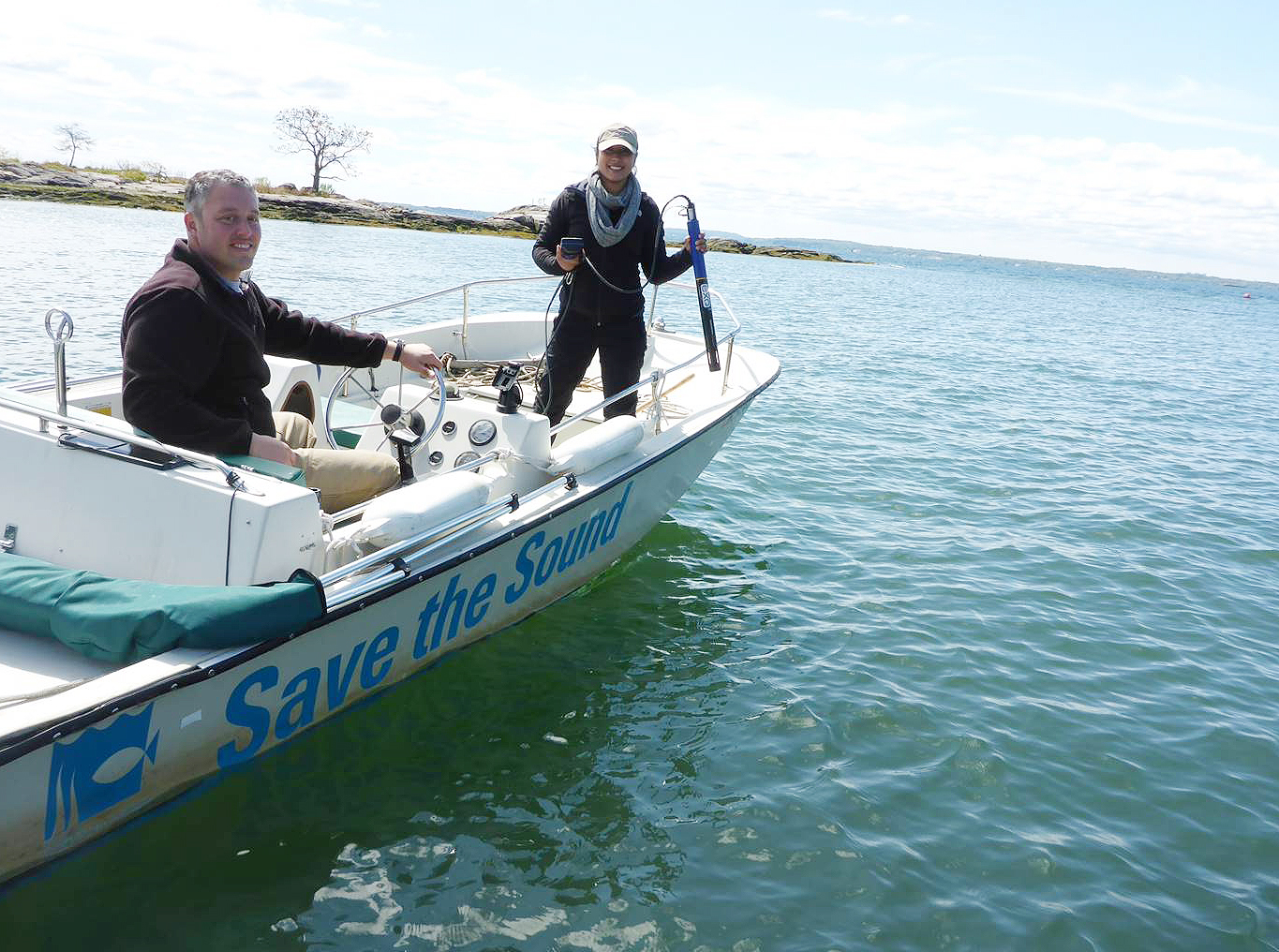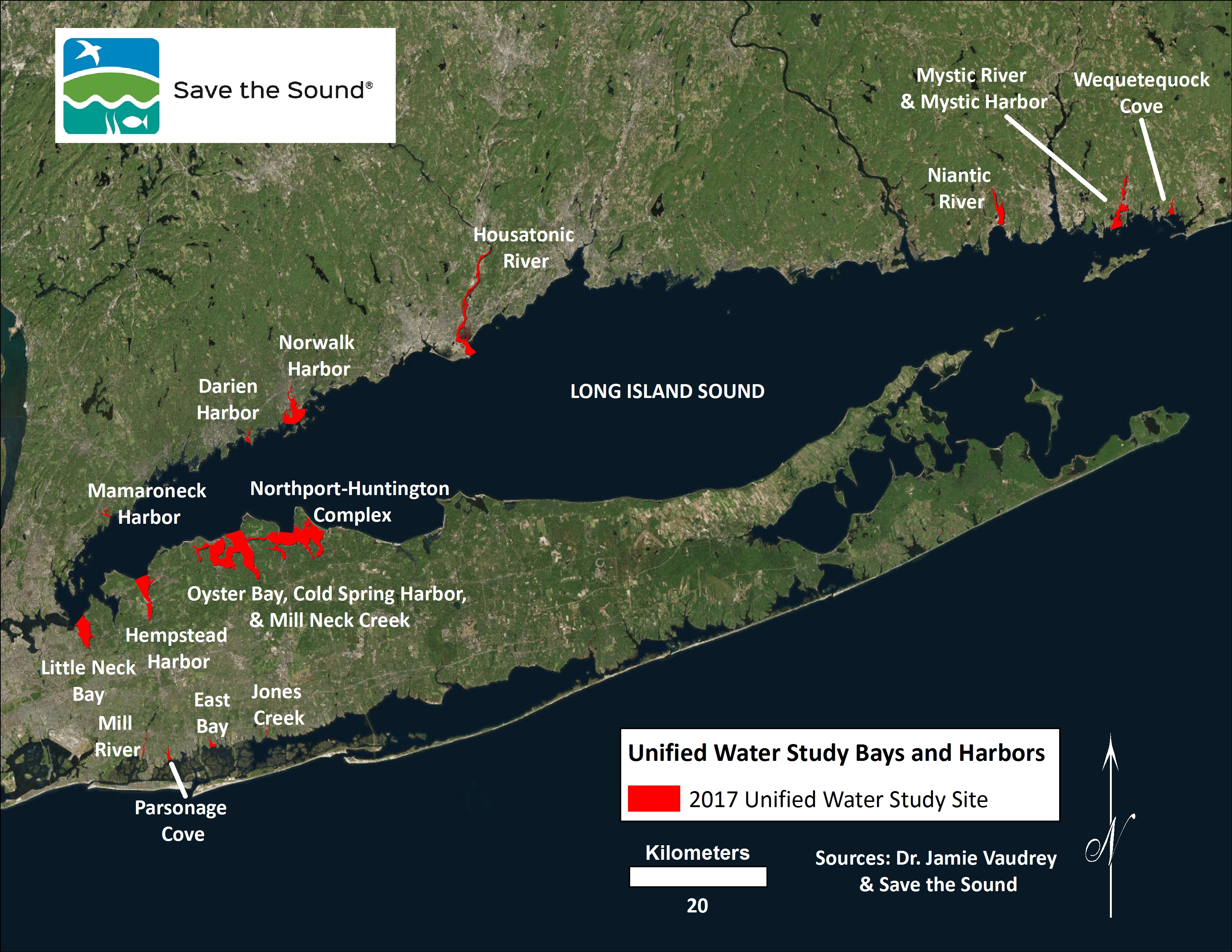Save the Sound has launched a groundbreaking water testing program that will dramatically increase available data on the health of Long Island Sound. Inspired by the Long Island Sound Report Card, the Unified Water Study: Long Island Sound Embayment Research will test water conditions in the Sound’s bays and harbors.

More than a decade of federally funded monitoring of the open Sound has documented the destructive impact of nitrogen pollution—including algae blooms, red tides, loss of tidal marshes, and fish die-offs—and the incremental improvements brought about by wastewater treatment plant upgrades.
However, recent scientific research by Professor Jamie Vaudrey of the University of Connecticut and others has shown that conditions in the bays and harbors –where much of the public comes into contact with the Sound – can be different from conditions in the open waters. More testing on bays and harbors is needed to judge the effect of nitrogen on these inlets and what action is still needed to restore them to vibrant life.
To answer these questions, Save the Sound led a collaborative process to design the Unified Water Study to rapidly and cost-effectively gather comparable data that will establish the relative health of each bay and harbor. To reach as many locations as possible, Save the Sound is training a wide variety of groups in the study methods. These “Sound Sleuths” include citizens, scientists, environmentalists and municipalities. Their findings will be published in future report cards and used to help direct restoration funding to the most stressed locations.
Tracy Brown, director of Save the Sound, commented, “With federal funding of clean water programs facing an uncertain future, restoration of Long Island Sound is in our hands. Teams of Sound Sleuths will investigate the conditions of our bays and harbors, and offer data that can lead to restoration. Save the Sound is honored to lead these groups in this effort and we’re confident the results will provide a valuable roadmap to aid in the protection of Long Island Sound for future generations.”
Professor Jamie Vaudrey, University of Connecticut, commented, “Nutrient pollution from our septic tanks, sewer outfalls, and fertilizer use are having a negative impact on our coastal waters, even when the source of the pollution is far inland. Just as each person responds differently to the flu, each of our 116 bays and harbors has a unique response to nutrient pollution. The Unified Water Study standardized methods allow us to assess the health of bays and harbors and compare their condition, giving us the local knowledge needed to tackle nutrient pollution.”
Starting this month, the Unified Water Study will be conducted in twenty-four locations on the Sound ranging from Queens, NY to Stonington, CT. There are twelve groups participating in this inaugural season, with more preparing to join the study in 2018. The trained corps of Sound Sleuths will be out on the water at dawn twice a month from May through October measuring dissolved oxygen, chlorophyll a, temperature, salinity, macrophytes (aquatic plants and seaweeds), and water clarity.
Science Advisors for the study are Jamie Vaudrey, PhD, and Jason Krumholz, PhD. Coordination is provided by Peter Linderoth of Save the Sound. Additional guidance has been provided by members of the Long Island Sound Study, New York State Department of Environmental Conservation, and Connecticut Department of Energy and Environmental Protection. Funding for this initiative has been provided by the Long Island Sound Funders Collaborative.

